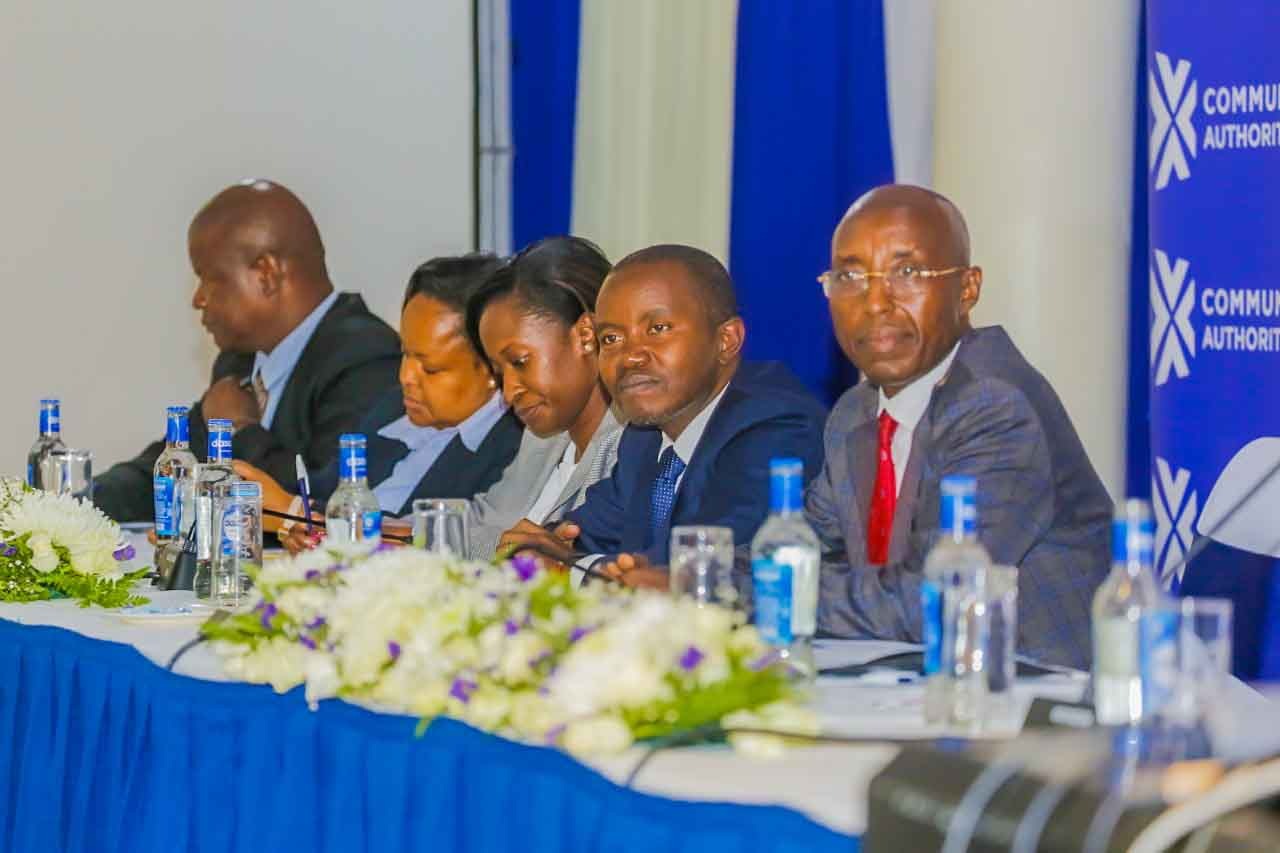advertisement
Is Kenya an inch away from adopting the 5G technology?
The Communications Authority of Kenya, (CA), recently hosted the second Stakeholder Sensitization Workshop on Decisions of the World Radiocommunication Conference…

The Communications Authority of Kenya, (CA), recently hosted the second Stakeholder Sensitization Workshop on Decisions of the World Radiocommunication Conference 2019 (WRC-19), to deliberate on the adoption and roll-out of the 5G technology.
Held at the Nairobi’s Hilton Hotel, the workshop availed the opportunity for interaction and possibly information acquisition by stakeholders, that may not be contained in the final documents (Final Acts) of the conference.
Speaking during her keynote address, Mercy Wanjau, the AG DR at CA noted that Kenya was among the 31 Africa countries that identified usable satellite orbital slots and are set to file their satellite notices, by 22nd May this year, with the Radiocommunications Bureau (BR) based at the International Telecommunication Union (ITU).
advertisement
“The last WRC was held in 2019 and it addressed more than 30 agenda items related to terrestrial and space radio services and applications. This included spectrum for mobile broadband, aeronautical systems, satellite services including meteorological applications, and maritime distress and safety signals,” she said. Adding; “Kenya was represented.”
The WRC-19 approved additional Spectrum for International Mobile Telecommunications (IMT)-2020 (5G mobile). The additional spectrum allocation to mobile services in the frequency bands 24.25-27.5 GHz, 37- 43.5 GHz. 47.2 – 48.2 GHz and 66 – 71 GHz will facilitate implementation of 5G mobile services in Kenya.
The new allocation will further contribute to social economic development of the country by providing diverse usage scenarios and applications such as enhanced mobile broadband, massive machine-type communications and ultra-reliable and low-latency communications.
advertisement
“The Communications Authority is working on the 5G licensing and rollout roadmap. Already seven firms have ongoing trials, which CA has authorized,” she added.
The outcome of the WRC-19 provides Kenya with additional spectrum allocations that can be utilized in various services, as noted the CS ICT, Joe Mucheru, that will be useful for developing solutions to some of the challenges faced locally and equally enable better and improve services to Kenyans in areas such as universal access to ICT, food security, education, public security and climate change, among others.
The CS pledged the government’s involvement in the adoption and rollout process to ensure that proper policies are put in place to support the domestication and implementation of the decisions of WRC-19.
advertisement
“My Ministry, in consultation with the relevant arms of government, will facilitate ratification of the Final Acts of the World Radiocommunication Conference to ensure that Kenya is fully compliant with the Treaty,” he said. “I therefore, urge all stakeholders to take keen interest in the preparatory work for the next world Radiocommunication Conference to be held in 2023, in order to ensure Kenya submits proposals that advance our collective ICT agenda as a nation.”
The WRC-19 outcomes as avered Ngene Gituku, Chairman CA, will fundamentally revolutionize the ICT landscape, not only in the continent but also in Kenya by enhancing the adoption of Artificial Intelligence, Big Data, the Internet of Things (IoT), cloud services and many other emerging technologies.
He said; “It is no doubt that the impact of WRC-19 decisions will be far reaching and may require countries having to revise their national table of frequency allocation and other related documents to conform to the agreed global changes.”
He added that locally, ICTs have assumed an increasingly strategic role, with their contribution to the economy currently approximated at 13.4 per cent. Ngene further noted the availability of radio spectrum and orbital slots, as an undisputable enabler for such growth.
“As we move to the next generation of digital technologies, we expect both satellite and terrestrial systems to play a critical role in the country’s digital transformation,” he concluded.
Successful implementation of the outcomes of the WRC19 will provide the tools for effective climate action, forge pathways for better access to health care, foster sustainable agricultural practices, reduce poverty and hunger and improve energy efficiency. It will also facilitate Intelligent Transport Systems and machine-to-machine communications, make cities smart and communities more sustainable, foster safer travel on land, on air and at sea, and allow us as a country to participate in the digital economy by providing access to faster and more affordable broadband connectivity, especially in currently underserved communities.
The World Radio Conference (WRC), is usually held every four years to review and revise the Radio Regulations, the international treaty governing the use of radio-frequency spectrum and satellite orbits.